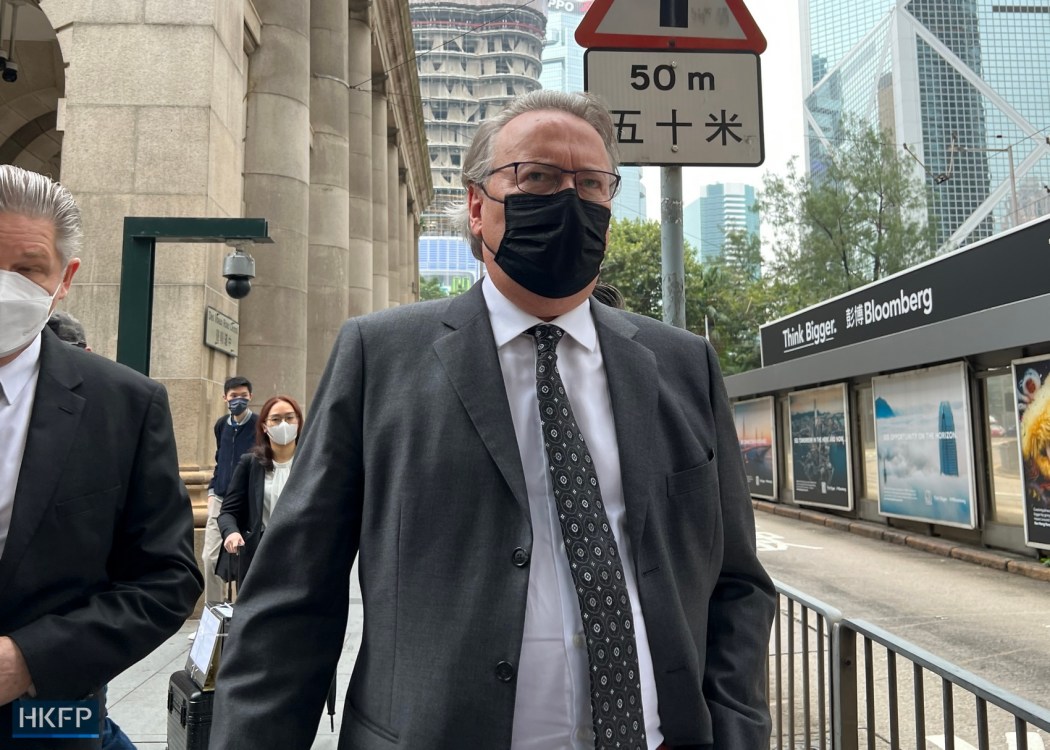Hong Kong’s proposal to amend the law so that the chief executive can decide whether to allow overseas barristers to participate in national security cases does not amount to a blanket ban, the city’s deputy secretary for justice said on Sunday.
“If it was a blanket ban, there would be no need to design such a concrete and detailed system,” said Horace Cheung on TVB’s On The Record.

Both of the city’s lawyers’ groups – the Bar Association and the Law Society – said they opposed a blanket ban.
Under the government’s latest proposal, foreign barristers that are not qualified to practise in Hong Kong would have to first notify the secretary for justice to get permission from the chief executive through a “pre-application screening process.”
The admission of foreign counsel would be an exception, according to the administration’s plan. The chief executive would have to have “sufficient grounds” to believe that admitting the overseas lawyer would not involve national security or harm national security interests.
The applicant could only apply to the High Court after the chief executive grants permission through the screening process. The court would then have to apply to the chief executive for certification whether the admission of said counsel would be allowed.
Cheung said that the government’s plan was to “fully reflect” the spirit of the legislative interpretation from the Standing Committee of the National People’s Congress (NPCSC).
The deputy justice minister added that Hong Kong was already more open compared to other common law jurisdictions, as many others would not allow the ad hoc admission of overseas lawyers.

The Law Society said last week that the proposal for a screening process was not cost effective.
Cheung said on Sunday that the pre-application process was aimed at avoiding abuses of the system. He added that whether or not the chief executive could publicise the reasoning for their decisions depends on whether such information would risk national security: “The administration has the most comprehensive facts and information, and is in a better position to make an accurate and extensive decisions on matters concerning national security.”
The NPCSC issued a legislative “interpretation” of the city’s sweeping security law following Chief Executive John Lee’s invitation to Beijing to intervene on the matter.
The debate on overseas counsels’ participation in national security cases arose after media tycoon Jimmy Lai attempted to hire King’s Counsel Timothy Owen to represent him in a now-adjourned trial.
Lai, who has been remanded in custody since December 2020, faces four charges. He is accused of one count of collusion with foreign forces, two counts of conspiracy to collude with foreign forces, and one offence under the colonial-era sedition law over allegedly seditious publications.
The media tycoon could face life imprisonment.

The security law, enacted in June 2020, criminalised subversion, secession, and terrorist acts, which were broadly defined to include disruption to transport and other infrastructure.
The move gave police sweeping new powers, alarming democrats, civil society groups and trade partners, as such laws have been used broadly to silence and punish dissidents in China. However, the authorities say it has restored stability and peace to the city.
The Court of First Instance, Court of Appeal, and Court of Final Appeal ruled against the government’s opposition to Owen’s admission on four occasions.
While the NPCSC interpretation did not rule directly on the matter, it confirmed powers for the chief executive and the city’s national security committee to decide whether to allow foreign lawyers in national security cases.
Support HKFP | Policies & Ethics | Error/typo? | Contact Us | Newsletter | Transparency & Annual Report | Apps
Help safeguard press freedom & keep HKFP free for all readers by supporting our team
























